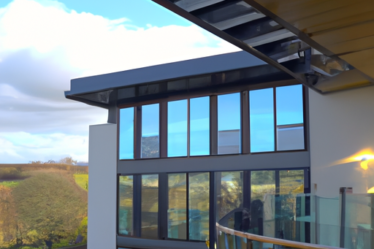
Emerging Trends in the Hospitality Industry for Fall 2023
The hospitality industry is constantly evolving, and it is important for industry professionals to stay informed about the latest trends and developments. As we look ahead to Fall 2023, HVS has released its outlook for the changing landscape of the hospitality industry. In this article, we will explore some of the emerging trends that are expected to shape the industry in the coming months.
One of the key trends that HVS predicts for Fall 2023 is the continued rise of experiential travel. Today’s travelers are seeking more than just a place to stay; they want to immerse themselves in unique and memorable experiences. Hotels and resorts that can offer these experiences, whether it be through curated local activities or on-site amenities, are likely to attract a loyal customer base.
Another trend that is expected to gain momentum in Fall 2023 is the increased focus on sustainability. As travelers become more conscious of their environmental impact, they are seeking out accommodations that prioritize sustainability practices. Hotels that implement eco-friendly initiatives, such as energy-efficient systems and waste reduction programs, are likely to appeal to this growing market segment.
Technology is also set to play a significant role in the hospitality industry in the coming months. HVS predicts that Fall 2023 will see a greater integration of technology throughout the guest experience. From mobile check-in and keyless entry to personalized recommendations based on guest preferences, hotels are embracing technology to enhance the overall guest experience and streamline operations.
In addition to these trends, HVS also anticipates a shift in the target demographic for the hospitality industry. Fall 2023 is expected to see a rise in the number of millennial and Gen Z travelers. These younger generations have different preferences and expectations when it comes to travel, and hotels will need to adapt to cater to their needs. This may include offering more flexible booking options, creating social spaces for networking and collaboration, and providing unique and Instagram-worthy design elements.
Furthermore, HVS predicts that Fall 2023 will see a rise in the popularity of alternative accommodations. While traditional hotels will always have their place, travelers are increasingly seeking out unique and unconventional accommodations. This includes everything from boutique hotels and vacation rentals to glamping sites and eco-lodges. Hotels that can offer a distinctive and authentic experience are likely to thrive in this changing landscape.
As the hospitality industry continues to evolve, it is crucial for industry professionals to stay ahead of the curve. By understanding and embracing these emerging trends, hotels and resorts can position themselves for success in Fall 2023 and beyond. Whether it is through offering experiential travel, prioritizing sustainability, integrating technology, targeting younger demographics, or providing alternative accommodations, the key to success lies in adapting to the changing needs and preferences of today’s travelers.
In conclusion, Fall 2023 is expected to bring about several exciting changes in the hospitality industry. From the rise of experiential travel and sustainability to the increased integration of technology and the shifting target demographic, hotels and resorts have a lot to look forward to. By staying informed and embracing these emerging trends, industry professionals can ensure that they are well-prepared to navigate the changing landscape and provide exceptional experiences for their guests.
Impact of Technology on the Changing Landscape of the Hospitality Sector

The hospitality sector has always been known for its ability to adapt and evolve with the changing times. As we look ahead to Fall 2023, it is clear that technology will play a significant role in shaping the landscape of the industry. From the way guests book their stays to the way hotels operate, technology is revolutionizing every aspect of the hospitality sector.
One of the most noticeable impacts of technology on the hospitality sector is the way guests now book their stays. Gone are the days of calling a hotel directly or even using a travel agent. Today, guests have the convenience of booking their accommodations online through various platforms and websites. This shift has not only made it easier for guests to find and compare options, but it has also opened up new opportunities for hotels to reach a wider audience.
In addition to online booking, technology has also transformed the guest experience once they arrive at the hotel. Many hotels now offer mobile check-in and keyless entry, allowing guests to bypass the front desk and go straight to their rooms. This not only saves time for both guests and hotel staff, but it also enhances the overall guest experience by providing a seamless and convenient check-in process.
Furthermore, technology has also revolutionized the way hotels operate behind the scenes. From inventory management to housekeeping, hotels are now relying on sophisticated software systems to streamline their operations. These systems not only help hotels manage their resources more efficiently but also provide valuable data and insights that can be used to improve guest satisfaction and drive revenue.
Another area where technology is making a significant impact is in the realm of guest personalization. With the help of data analytics and artificial intelligence, hotels can now gather and analyze vast amounts of information about their guests. This allows them to tailor their offerings and services to meet the specific needs and preferences of each individual guest. From personalized recommendations to customized room amenities, technology is enabling hotels to create truly unique and memorable experiences for their guests.
However, with all the benefits that technology brings, there are also challenges that the hospitality sector must navigate. One of the biggest concerns is the potential loss of the human touch. As hotels become more automated and reliant on technology, there is a risk of losing the personal connection that has always been a hallmark of the industry. It is crucial for hotels to strike a balance between technology and human interaction to ensure that guests still feel valued and cared for.
In conclusion, technology is undoubtedly reshaping the landscape of the hospitality sector. From the way guests book their stays to the way hotels operate, technology is revolutionizing every aspect of the industry. While there are challenges to overcome, the benefits of technology in terms of efficiency, personalization, and guest experience are undeniable. As we look ahead to Fall 2023, it is clear that technology will continue to play a significant role in shaping the future of the hospitality sector.
Strategies for Adapting to the Evolving Hospitality Market in Fall 2023
As we approach the fall of 2023, the hospitality market continues to evolve at a rapid pace. With changing consumer preferences and emerging technologies, it is crucial for businesses in the industry to adapt their strategies to stay competitive. In this article, we will explore some key strategies that can help businesses navigate the changing landscape of the hospitality market.
One of the most important strategies for adapting to the evolving hospitality market is to embrace technology. In today’s digital age, technology plays a significant role in shaping consumer behavior and expectations. Businesses that leverage technology to enhance their operations and improve the guest experience are more likely to succeed. From mobile check-ins and keyless entry systems to personalized recommendations based on data analytics, technology can revolutionize the way hospitality businesses operate.
Another strategy for adapting to the evolving hospitality market is to prioritize sustainability. With increasing awareness about environmental issues, consumers are becoming more conscious of their carbon footprint. Businesses that adopt sustainable practices not only contribute to a greener future but also attract environmentally conscious guests. Implementing energy-efficient systems, reducing waste, and sourcing locally are just a few ways businesses can demonstrate their commitment to sustainability.
Furthermore, personalization is key in the evolving hospitality market. Today’s consumers expect tailored experiences that cater to their individual preferences and needs. By collecting and analyzing guest data, businesses can gain valuable insights into their customers’ preferences and create personalized experiences. From customized room amenities to curated recommendations for local attractions and dining options, personalization can significantly enhance the guest experience and foster customer loyalty.
In addition to personalization, collaboration is another strategy that can help businesses thrive in the evolving hospitality market. Partnering with local businesses and organizations can create unique opportunities for cross-promotion and collaboration. By working together, businesses can tap into new markets and reach a wider audience. For example, a hotel can collaborate with a local tour operator to offer exclusive packages that combine accommodation and guided tours, providing guests with a seamless and memorable experience.
Moreover, businesses in the hospitality industry should also focus on diversifying their revenue streams. Relying solely on room bookings may not be sustainable in the long run. By offering additional services and experiences, such as spa treatments, fitness classes, or even hosting events and conferences, businesses can generate additional revenue and attract a broader range of customers. Diversification not only helps businesses weather economic downturns but also allows them to cater to different customer segments and stay relevant in a competitive market.
In conclusion, the hospitality market is constantly evolving, and businesses need to adapt their strategies to stay ahead. Embracing technology, prioritizing sustainability, personalizing the guest experience, collaborating with local businesses, and diversifying revenue streams are all key strategies for success in the evolving hospitality market. By implementing these strategies, businesses can not only thrive in the fall of 2023 but also position themselves for long-term success in the ever-changing landscape of the hospitality industry.


